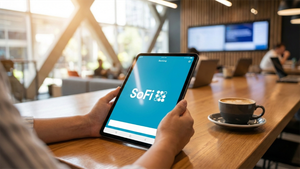Data presented underscores the breadth of 2seventy bio’s portfolio of oncology cell therapies
New pre-clinical data on SC-DARIC33, an investigational, potentially first-in-class CD33-targeting CAR T for the treatment of acute myeloid leukemia
Updated safety and efficacy data from the ongoing Phase I CRB-402 study of the BCMA-directed CAR T cell therapy bb21217 in patients with relapsed and refractory multiple myeloma
2seventy bio, Inc. (NASDAQ: TSVT) announced today that data from its pipeline of oncology cell therapies will be presented, including two oral presentations, at the 63rd American Society of Hematology (ASH) Annual Meeting and Exposition on December 11-14, 2021, in Atlanta, Georgia and virtually.
New pre-clinical data on SC-DARIC33, an investigational, pharmacologically controlled CD33-targeted chimeric antigen receptor (CAR) T cell product, being studied and developed in collaboration with Seattle Children’s Therapeutics for the potential treatment of acute myeloid leukemia (AML), has been accepted for oral presentation. A second oral presentation, in partnership with Bristol Myers Squibb (BMS), will feature updated results from the ongoing Phase I CRB-402 study of the B-cell maturation antigen (BCMA)-targeted CAR T cell therapy bb21217 in patients with relapsed and refractory multiple myeloma (RRMM).
In addition, a range of analyses will be presented from the pivotal KarMMa trial of idecabtagene vicleucel (ABECMA; ide-cel), a first-in-class BCMA-directed CAR T cell immunotherapy in relapsed or refractory multiple myeloma, in partnership with BMS. These analyses demonstrate that clinically meaningful improvements in quality of life are maintained with extended follow-up, with most patients reporting a positive treatment experience in the KarMMa study, and patients who relapse from ide-cel benefit from subsequent therapies, including anti-BCMA therapies.
Acute Myeloid Leukemia Data
Oral Presentation [#905]: Clinical Translation of SC-DARIC33: A Pharmacologically Controlled CD33-Targeted Anti-AML CAR T Cell Product Regulated by Low Nanomolar Concentrations of Rapamycin
Presenting Author: Jacob Appelbaum, MD, Acting Instructor, Division of Hematology, University of Washington School of Medicine, Seattle, WA
Date/Time: Monday, December 13, 2021, 7:15 PM ET
Multiple Myeloma Data
Oral Presentation [#548]: Updated Clinical and Correlative Results from the Phase I CRB-402 Study of the BCMA-Targeted CAR T Cell Therapy bb21217 in Patients with Relapsed and Refractory Multiple Myeloma
Presenting Author: Noopur S. Raje, MD, Clinical Director of the Center for Multiple Myeloma, Massachusetts General Hospital, Boston, MA
Date/Time: Sunday, December 12, 2021, 4:45 PM ET
Poster [#1739]: Baseline Correlates of Complete Response to Idecabtagene Vicleucel (ide-cel, bb2121), a BCMA-Directed CAR T Cell Therapy in Patients with Relapsed and Refractory Multiple Myeloma: Subanalysis of the KarMMa Trial
Presenting Author: Nina Shah, MD, Professor of Clinical Medicine, Division of Hematology/Oncology, University of California San Francisco, San Francisco, CA
Date/Time: Saturday, December 11, 5:30 ‒ 7:30 pm ET
Poster [#1978]: Matching-Adjusted Indirect Comparisons of Efficacy Outcomes in Patients with Relapsed and Refractory Multiple Myeloma for Idecabtagene Vicleucel (KarMMa) vs. Selinexor Plus Dexamethasone (STORM Part 2) and Belantamab Mafodontin (DREAMM-2): Updated Analysis with Longer Follow-up
Presenting Author: Paula Rodriguez-Otero, MD, PhD, Consultant, Department of Hematology, University of Navarra, Pamplona, Spain
Date/Time: Saturday, December 11, 5:30 ‒ 7:30 pm ET
Poster [#2743]: Subsequent Anti-Myeloma Therapy after Idecabtagene Vicleucel (ide-cel, bb2121) Treatment in Patients with Relapsed/Refractory Multiple Myeloma from the KarMMa Study
Presenting Author: Paula Rodriguez-Otero, MD, PhD, Consultant, Department of Hematology, University of Navarra, Pamplona, Spain
Date/Time: Sunday, December 12, 6:00 ‒ 8:00 PM ET
Poster [#2835]: Updated Health-Related Quality of Life Results from the KarMMa Clinical Study in Patients with Relapsed and Refractory Multiple Myeloma Treated with the B-Cell Maturation Antigen-Directed Chimeric Antigen Receptor T Cell Therapy Idecabtagene Vicleucel (ide-cel, bb2121)
Presenting Author: Michel Delforge, MD, PhD, Chairman, Leuven Cancer Institute, University Hospital Leuven, Leuven, Belgium
Date/Time: Sunday, December 12, 6:00 – 8:00 PM ET
Poster [#3041]: Idecabtagene Vicleucel (ide-cel, bb2121), a B-Cell Maturation Antigen-Directed Chimeric Antigen Receptor T Cell Therapy: Qualitative Analyses of Post-Treatment Interviews (Months 6–24) for Patients with Relapsed and Refractory Multiple Myeloma in the KarMMa Clinical Trial
Presenting Author: Nina Shah, MD, Professor of Clinical Medicine, Division of Hematology/Oncology, University of California San Francisco, San Francisco, CA
Date/Time: Sunday, December 12, 6:00 – 8:00 PM ET
Abstracts outlining 2seventy bio’s accepted data at ASH are available on the ASH conference website.
About SC-DARIC33
2seventy bio is collaborating with Seattle Children’s Therapeutics to rapidly accelerate development of potential new therapies for patients with acute myeloid leukemia (AML). This research collaboration is investigating potential solutions to two challenges in treating AML: disease heterogeneity and toxicity due to shared expression of targets between tumor and normal tissue.
SC-DARIC33 is an investigational CD33-specific cell therapy that utilizes 2seventy bio’s proprietary Dimerizing Agent Regulated Immunoreceptor Complex (DARIC) T cell platform, a regulatable CAR T cell technology. DARIC T cells are intended to be switched from “OFF” to “ON” in the presence of rapamycin, such that while in the “ON” state the T cell is poised to be activated upon encounter with its target antigen.
The upcoming Phase I study of SC-DARIC33 in relapsed/refractory pediatric AML, led by Seattle Children’s Therapeutics, will couple 2seventy bio’s DARIC T cell platform with Seattle Children’s world-class bench-to-bedside expertise in oncology cell therapies. This study is a first-in-human investigation of the DARIC T cell platform.
SC-DARIC33 is not approved for any indication in any geography.
About bb21217
bb21217 is an investigational BCMA-directed CAR T cell therapy that uses the ide-cel CAR molecule and is cultured with the PI3 kinase inhibitor (bb007) to enrich for T cells displaying a memory-like phenotype with the intention to increase the in vivo persistence of CAR T cells. bb21217 is being studied for patients with multiple myeloma in partnership with Bristol Myers Squibb.
The clinical development program for bb21217 includes the ongoing Phase I CRB-402 study. CRB-402 is the first-in-human study of bb21217 in patients with relapsed and refractory multiple myeloma (RRMM), designed to assess safety, pharmacokinetics, efficacy and duration of effect. CRB-402 is a two-part (dose escalation and dose expansion), open-label, multi-site Phase I study of bb21217 in adults with RRMM. A total of 69 patients have been treated with bb21217 and the study has completed enrollment. For more information visit: clinicaltrials.gov using identifier NCT03274219.
bb21217 is not approved for any indication in any geography.
About ABECMA (idecabtagene vicleucel; ide-cel)
ABECMA is the first-in-class B-cell maturation antigen (BCMA)-directed chimeric antigen receptor (CAR) T cell immunotherapy approved in the U.S. for the treatment of adult patients with relapsed or refractory multiple myeloma after four or more prior lines of therapy, including and immunomodulatory agent, a proteasome inhibitor, and an anti-CD38 monoclonal antibody. ABECMA has also received approval in the European Union, Canada, and Switzerland. ABECMA recognizes and binds to BCMA on the surface of multiple myeloma cells leading to CAR T cell proliferation, cytokine secretion, and subsequent cytolytic killing of BCMA-expressing cells. ABECMA is being jointly developed and commercialized in the U.S. as part of a Co-Development, Co-Promotion, and Profit Share Agreement with 2seventy bio and Bristol Myers Squibb. Bristol Myers Squibb assumes sole responsibility for ABECMA drug product manufacturing and commercialization outside of the U.S.
2seventy bio and Bristol Myers Squibb’s broad clinical development program for ABECMA includes clinical studies (KarMMa-2, KarMMa-3, KarMMa-4, KarMMa-7) in earlier lines of treatment for patients with multiple myeloma, including newly diagnosed multiple myeloma. For more information visit clinicaltrials.gov.
Indication
ABECMA (idecabtagene vicleucel) is a B-cell maturation antigen (BCMA)-directed genetically modified autologous T cell immunotherapy indicated for the treatment of adult patients with relapsed or refractory multiple myeloma after four or more prior lines of therapy, including an immunomodulatory agent, a proteasome inhibitor, and an anti-CD38 monoclonal antibody.
Important Safety Information
BOXED WARNING: CYTOKINE RELEASE SYNDROME, NEUROLOGIC TOXICITIES, HLH/MAS, AND PROLONGED CYTOPENIA
- Cytokine Release Syndrome (CRS), including fatal or life-threatening reactions, occurred in patients following treatment with ABECMA. Do not administer ABECMA to patients with active infection or inflammatory disorders. Treat severe or life-threatening CRS with tocilizumab or tocilizumab and corticosteroids.
- Neurologic Toxicities, which may be severe or life-threatening, occurred following treatment with ABECMA, including concurrently with CRS, after CRS resolution, or in the absence of CRS. Monitor for neurologic events after treatment with ABECMA. Provide supportive care and/or corticosteroids as needed.
- Hemophagocytic Lymphohistiocytosis/Macrophage Activation Syndrome (HLH/MAS) including fatal and life-threatening reactions, occurred in patients following treatment with ABECMA. HLH/MAS can occur with CRS or neurologic toxicities.
- Prolonged Cytopenia with bleeding and infection, including fatal outcomes following stem cell transplantation for hematopoietic recovery, occurred following treatment with ABECMA.
- ABECMA is available only through a restricted program under a Risk Evaluation and Mitigation Strategy (REMS) called the ABECMA REMS.
Cytokine Release Syndrome (CRS): CRS, including fatal or life-threatening reactions, occurred following treatment with ABECMA. CRS occurred in 85% (108/127) of patients receiving ABECMA. Grade 3 or higher CRS (Lee grading system) occurred in 9% (12/127) of patients, with Grade 5 CRS reported in one (0.8%) patient. The median time to onset of CRS, any grade, was 1 day (range: 1 - 23 days) and the median duration of CRS was 7 days (range: 1 - 63 days) in all patients including the patient who died. The most common manifestations of CRS included pyrexia (98%), hypotension (41%), tachycardia (35%), chills (31%), hypoxia (20%), fatigue (12%), and headache (10%). Grade 3 or higher events that may be associated with CRS include hypotension, hypoxia, hyperbilirubinemia, hypofibrinogenemia, acute respiratory distress syndrome (ARDS), atrial fibrillation, hepatocellular injury, metabolic acidosis, pulmonary edema, multiple organ dysfunction syndrome and HLH/MAS.
Identify CRS based on clinical presentation. Evaluate for and treat other causes of fever, hypoxia, and hypotension. CRS has been reported to be associated with findings of HLH/MAS, and the physiology of the syndromes may overlap. HLH/MAS is a potentially life-threatening condition. In patients with progressive symptoms of CRS or refractory CRS despite treatment, evaluate for evidence of HLH/MAS.
Fifty four percent (68/127) of patients received tocilizumab; 35% (45/127) received a single dose while 18% (23/127) received more than 1 dose of tocilizumab. Overall, across the dose levels, 15% (19/127) of patients received at least 1 dose of corticosteroids for treatment of CRS. All patients that received corticosteroids for CRS received tocilizumab.
Overall rate of CRS was 79% and rate of Grade 2 CRS was 23% in patients treated in the 300 x 106 CAR+ T cell dose cohort. For patients treated in the 450 x 106 CAR+ T cell dose cohort, the overall rate of CRS was 96% and rate of Grade 2 CRS was 40%. Rate of Grade 3 or higher CRS was similar across the dose range. The median duration of CRS for the 450 x 106 CAR+ T cell dose cohort was 7 days (range: 1-63 days) and for the 300 x 106 CAR+ T cell dose cohort was 6 days (range: 2-28 days). In the 450 x 106 CAR+ T cell dose cohort, 68% (36/53) of patients received tocilizumab and 23% (12/53) received at least 1 dose of corticosteroids for treatment of CRS. In the 300 x 106 CAR+ T cell dose cohort, 44% (31/70) of patients received tocilizumab and 10% (7/70) received corticosteroids. All patients that received corticosteroids for CRS also received tocilizumab. Ensure that a minimum of 2 doses of tocilizumab are available prior to infusion of ABECMA.
Monitor patients at least daily for 7 days following ABECMA infusion at the REMS-certified healthcare facility for signs and symptoms of CRS. Monitor patients for signs or symptoms of CRS for at least 4 weeks after infusion. At the first sign of CRS, institute treatment with supportive care, tocilizumab and/or corticosteroids as indicated.
Counsel patients to seek immediate medical attention should signs or symptoms of CRS occur at any time.
Neurologic Toxicities: Neurologic toxicities, which may be severe or life-threatening, occurred following treatment with ABECMA, including concurrently with CRS, after CRS resolution, or in the absence of CRS. CAR T cell-associated neurotoxicity occurred in 28% (36/127) of patients receiving ABECMA, including Grade 3 in 4% (5/127) of patients. One patient had ongoing Grade 2 neurotoxicity at the time of death. Two patients had ongoing Grade 1 tremor at the time of data cutoff. The median time to onset of neurotoxicity was 2 days (range: 1 - 42 days). CAR T cell-associated neurotoxicity resolved in 92% (33/36) of patients with a median duration of neurotoxicity was 5 days (range: 1 - 61 days). The median duration of neurotoxicity was 6 days (range: 1 - 578) in all patients including those with ongoing neurotoxicity at the time of death or data cut off. Thirty-four patients with neurotoxicity had CRS. Neurotoxicity had onset in 3 patients before, 29 patients during, and 2 patients after CRS. The rate of Grade 3 neurotoxicity was 8% in the 450 x 106 CAR+ T cell dose cohort and 1.4% in the 300 x 106 CAR+ T cell dose cohort. The most frequently reported (greater than or equal to 5%) manifestations of CAR T cell-associated neurotoxicity include encephalopathy (20%), tremor (9%), aphasia (7%), and delirium (6%). Grade 4 neurotoxicity and cerebral edema in 1 patient has been reported with ABECMA in another study in multiple myeloma. Grade 3 myelitis and Grade 3 parkinsonism have been reported after treatment with ABECMA in another study in multiple myeloma.
Monitor patients at least daily for 7 days following ABECMA infusion at the REMS-certified healthcare facility for signs and symptoms of neurologic toxicities. Rule out other causes of neurologic symptoms. Monitor patients for signs or symptoms of neurologic toxicities for at least 4 weeks after infusion and treat promptly. Neurologic toxicity should be managed with supportive care and/or corticosteroids as needed.
Counsel patients to seek immediate medical attention should signs or symptoms of neurologic toxicity occur at any time.
Hemophagocytic Lymphohistiocytosis (HLH)/Macrophage Activation Syndrome (MAS): HLH/MAS occurred in 4% (5/127) of patients receiving ABECMA. One patient treated in the 300 x 106 CAR+ T cell dose cohort developed fatal multi-organ HLH/MAS with CRS. In another patient with fatal bronchopulmonary aspergillosis, HLH/MAS was contributory to the fatal outcome. Three cases of Grade 2 HLH/MAS resolved. The rate of HLH/MAS was 8% in the 450 x 106 CAR+ T cell dose cohort and 1% in the 300 x 106 CAR+ T cell dose cohort. All events of HLH/MAS had onset within 10 days of receiving ABECMA with a median onset of 7 days (range: 4-9 days) and occurred in the setting of ongoing or worsening CRS. Two patients with HLH/MAS had overlapping neurotoxicity. The manifestations of HLH/MAS include hypotension, hypoxia, multiple organ dysfunction, renal dysfunction, and cytopenia. HLH/MAS is a potentially life-threatening condition with a high mortality rate if not recognized early and treated. Treatment of HLH/MAS should be administered per institutional standards.
ABECMA REMS: Due to the risk of CRS and neurologic toxicities, ABECMA is available only through a restricted program under a Risk Evaluation and Mitigation Strategy (REMS) called the ABECMA REMS. Further information is available at www.AbecmaREMS.com or 1‑888‑423‑5436.
Hypersensitivity Reactions: Allergic reactions may occur with the infusion of ABECMA. Serious hypersensitivity reactions, including anaphylaxis, may be due to dimethyl sulfoxide (DMSO) in ABECMA.
Infections: ABECMA should not be administered to patients with active infections or inflammatory disorders. Severe, life-threatening, or fatal infections occurred in patients after ABECMA infusion. Infections (all grades) occurred in 70% of patients. Grade 3 or 4 infections occurred in 23% of patients. Overall, 4 patients had Grade 5 infections (3%); 2 patients (1.6%) had Grade 5 events of pneumonia, 1 patient (0.8%) had Grade 5 bronchopulmonary aspergillosis, and 1 patient (0.8%) had cytomegalovirus (CMV) pneumonia associated with Pneumocystis jirovecii. Monitor patients for signs and symptoms of infection before and after ABECMA infusion and treat appropriately. Administer prophylactic, preemptive, and/or therapeutic antimicrobials according to standard institutional guidelines. Febrile neutropenia was observed in 16% (20/127) of patients after ABECMA infusion and may be concurrent with CRS. In the event of febrile neutropenia, evaluate for infection and manage with broad spectrum antibiotics, fluids, and other supportive care as medically indicated.
Viral Reactivation: Cytomegalovirus (CMV) infection resulting in pneumonia and death has occurred following ABECMA administration. Monitor and treat for CMV reactivation in accordance with clinical guidelines. Hepatitis B virus (HBV) reactivation, in some cases resulting in fulminant hepatitis, hepatic failure, and death, can occur in patients treated with drugs directed against plasma cells. Perform screening for CMV, HBV, hepatitis C virus (HCV), and human immunodeficiency virus (HIV) in accordance with clinical guidelines before collection of cells for manufacturing.
Prolonged Cytopenias: Patients may exhibit prolonged cytopenias following lymphodepleting chemotherapy and ABECMA infusion. In the KarMMa study, 41% of patients (52/127) experienced prolonged Grade 3 or 4 neutropenia and 49% (62/127) experienced prolonged Grade 3 or 4 thrombocytopenia that had not resolved by Month 1 following ABECMA infusion. Rate of prolonged neutropenia was 49% in the 450 x 106 CAR+ T cell dose cohort and 34% in the 300 x 106 CAR+ T cell dose cohort. In 83% (43/52) of patients who recovered from Grade 3 or 4 neutropenia after Month 1, the median time to recovery from ABECMA infusion was 1.9 months. In 65% (40/62) of patients who recovered from Grade 3 or 4 thrombocytopenia, the median time to recovery was 2.1 months. Median time to cytopenia recovery was similar across the 300 and 450 x 106 dose cohort.
Three patients underwent stem cell therapy for hematopoietic reconstitution due to prolonged cytopenia. Two of the three patients died from complications of prolonged cytopenia. Monitor blood counts prior to and after ABECMA infusion. Manage cytopenia with myeloid growth factor and blood product transfusion support according to institutional guidelines.
Hypogammaglobulinemia: Plasma cell aplasia and hypogammaglobulinemia can occur in patients receiving treatment with ABECMA. Hypogammaglobulinemia was reported as an adverse event in 21% (27/127) of patients; laboratory IgG levels fell below 500 mg/dl after infusion in 25% (32/127) of patients treated with ABECMA.
Monitor immunoglobulin levels after treatment with ABECMA and administer IVIG for IgG <400 mg/dl. Manage per local institutional guidelines, including infection precautions and antibiotic or antiviral prophylaxis.
The safety of immunization with live viral vaccines during or following ABECMA treatment has not been studied. Vaccination with live virus vaccines is not recommended for at least 6 weeks prior to the start of lymphodepleting chemotherapy, during ABECMA treatment, and until immune recovery following treatment with ABECMA.
Secondary Malignancies: Patients treated with ABECMA may develop secondary malignancies. Monitor life-long for secondary malignancies. If a secondary malignancy occurs, contact Bristol Myers Squibb at 1-888-805-4555 to obtain instructions on patient samples to collect for testing of secondary malignancy of T cell origin.
Effects on Ability to Drive and Operate Machinery: Due to the potential for neurologic events, including altered mental status or seizures, patients receiving ABECMA are at risk for altered or decreased consciousness or coordination in the 8 weeks following ABECMA infusion. Advise patients to refrain from driving and engaging in hazardous occupations or activities, such as operating heavy or potentially dangerous machinery, during this initial period.
Adverse Reactions: The most common nonlaboratory adverse reactions (incidence greater than or equal to 20%) include CRS, infections – pathogen unspecified, fatigue, musculoskeletal pain, hypogammaglobulinemia, diarrhea, upper respiratory tract infection, nausea, viral infections, encephalopathy, edema, pyrexia, cough, headache, and decreased appetite.
Please see full Prescribing Information, including Boxed WARNINGS and Medication Guide.
About 2seventy bio
Our name, 2seventy bio, reflects why we do what we do - TIME. Cancer rips time away and our goal is to work at the maximum speed of translating human thought into action – 270 miles per hour—to give the people we serve more time. We are building the leading immuno-oncology cell therapy company, focused on discovering and developing new therapies that truly disrupt the cancer treatment landscape With a deep understanding of the human body’s immune response to tumor cells and how to translate cell therapies into practice, we’re applying this knowledge to deliver next generation cellular therapies that focus on a broad range of hematologic malignancies, including the first FDA-approved CAR T cell therapy for multiple myeloma, as well as solid tumors. Our research and development is focused on delivering therapies that are designed with the goal to “think” smarter and faster than the disease. Importantly, we remain focused on accomplishing these goals by staying genuine and authentic to our “why” and keeping our people and culture top of mind every day.
For more information, visit www.2seventybio.com.
Follow 2seventy bio on social media: Twitter and LinkedIn.
2seventy bio is a trademark of 2seventy bio, Inc.
2seventy bio Cautionary Statement Regarding Forward-Looking Statements
This press release contains “forward-looking statements” within the meaning of the Private Securities Litigation Reform Act of 1995. All statements that are not statements of historical facts are, or may be deemed to be, forward-looking statements, including statements regarding plans for the development, manufacture or sale of our product candidates (or our approved product in additional indications) and the associated timing thereof, including the design and results of pre-clinical and clinical studies, the efficacy and perceived therapeutic benefits of our product candidates and the potential indications and market opportunities therefor, and expectations regarding the timing for the commencement of the Phase 1 clinical trials of SC-DARIC33 and bb21217. Such forward-looking statements are based on historical performance and current expectations and projections about our future financial results, goals, plans and objectives and are subject to risks, assumptions and uncertainties, including: the risk that we may encounter substantial delays in our clinical studies, or we may fail to demonstrate safety and efficacy to the satisfaction of applicable regulatory authorities; the risk that the market opportunities for our approved product or any future product are smaller than we believe they are; the risk that we are BMS, upon whom we rely for the successful development and commercialization of ABECMA and bb21217 does not devote sufficient resources thereto, is unsuccessful in its efforts, or chooses to terminate its agreements with us; and other internal or external factors that could delay, divert or change any of them in the next several years, that are difficult to predict, may be beyond our control and could cause our future financial results, goals, plans and objectives to differ materially from those expressed in, or implied by, the statements. No forward-looking statement can be guaranteed. For a discussion of other risks and uncertainties, and other important factors, any of which could cause our actual results to differ from those contained in the forward-looking statements, see the section entitled “Risk Factors” in the Form 10 filed by 2seventy bio with the Securities and Exchange Commission (SEC) and declared effective by the SEC on October 18, 2021, as well as discussions of potential risks, uncertainties, and in 2seventy bio’s subsequent filings with the Securities and Exchange Commission. The forward-looking statements included in this document are made only as of the date of this document and except as otherwise required by applicable law, 2seventy bio undertakes no obligation to publicly update or revise any forward-looking statement, whether as a result of new information, future events, changed circumstances or otherwise.
Hyperlinks are provided as a convenience and for informational purposes only. Neither Bristol Myers Squibb, Seattle Children’s Therapeutics nor 2seventy bio bears responsibility for the security or content of external websites or websites outside of their respective control.
View source version on businesswire.com: https://www.businesswire.com/news/home/20211104006196/en/
Contacts
Investors:
Elizabeth Pingpank, 617-914-8736
elizabeth.pingpank@2seventybio.com
Media:
Victoria von Rinteln, 703-599-2868
victoria.vonrinteln@2seventybio.com




